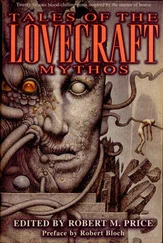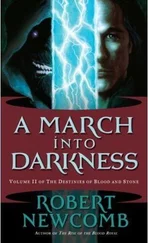Robert Pirsig - Lila. An Inquiry Into Morals
Здесь есть возможность читать онлайн «Robert Pirsig - Lila. An Inquiry Into Morals» весь текст электронной книги совершенно бесплатно (целиком полную версию без сокращений). В некоторых случаях можно слушать аудио, скачать через торрент в формате fb2 и присутствует краткое содержание. Жанр: Современная проза, на английском языке. Описание произведения, (предисловие) а так же отзывы посетителей доступны на портале библиотеки ЛибКат.
- Название:Lila. An Inquiry Into Morals
- Автор:
- Жанр:
- Год:неизвестен
- ISBN:нет данных
- Рейтинг книги:3 / 5. Голосов: 1
-
Избранное:Добавить в избранное
- Отзывы:
-
Ваша оценка:
- 60
- 1
- 2
- 3
- 4
- 5
Lila. An Inquiry Into Morals: краткое содержание, описание и аннотация
Предлагаем к чтению аннотацию, описание, краткое содержание или предисловие (зависит от того, что написал сам автор книги «Lila. An Inquiry Into Morals»). Если вы не нашли необходимую информацию о книге — напишите в комментариях, мы постараемся отыскать её.
Lila. An Inquiry Into Morals — читать онлайн бесплатно полную книгу (весь текст) целиком
Ниже представлен текст книги, разбитый по страницам. Система сохранения места последней прочитанной страницы, позволяет с удобством читать онлайн бесплатно книгу «Lila. An Inquiry Into Morals», без необходимости каждый раз заново искать на чём Вы остановились. Поставьте закладку, и сможете в любой момент перейти на страницу, на которой закончили чтение.
Интервал:
Закладка:
Well, what…
A really angry glare came into Lila’s blue eyes. Why do you want to know about him so much? she said. It sounds like you’re trying to get something on him. I don’t like your questions. I don’t want to hear about it. I thought he was your friend.
Her jaw clamped shut and her cheek muscles were tense. She turned away from him and stared down over the boat’s bulwark at the passing water.
A railroad train came along the shore, on its way to Albany probably. There was a roar as it went by and then disappeared to the north. He hadn’t even known that the track was there.
What else hadn’t he noticed? He had a feeling there were a lot of things. Secrets, Rigel had said. Forbidden things. This was the Atlantic Seaboard starting up now: a whole other culture.
Back from the shore stood another mansion like the one Phædrus had noticed earlier. This one was of gray stone, so bleak and oppressive it looked like a setting for some great historic tragedy. Another old Eastern robber-baron, Phædrus thought. Or his descendants… or maybe their creditors.
He studied the mansion for a while. It was set back above a huge lawn. Everything was in its place. All the leaves were raked and the grass was mowed. Even the trees were carefully spaced and carefully trimmed. It looked like the work of some obedient caretaker who had been at it, patiently, all his life.
Lila got up and said she needed to wash. She looked angry but Phædrus didn’t know exactly what to do about it. He told her how to pump the water to wash with, and she picked up the empty box of cheese crackers and her cup and stepped into the hatchway.
Halfway down the ladder she turned and said, Give me your cup, and I’ll wash it. No expression. He gave her his cup and then she disappeared.
He kept looking back again at the mansion rising back of the trees, as the boat moved away from it. It was huge and gray and shabby, and somewhat frightening. They sure knew how to dominate the spirit.
He picked up the binoculars for a closer look. Under one small grove of oak trees by the shore were empty white-painted chairs around a white table. From their curlicued shapes he guessed they were made of ornamental cast-iron. Something about them seemed to convey the mood of the whole place. Brittle, cold and uncomfortable. That was the Victorian spirit: a whole attitude toward life. Quality, they called it. European quality. Full of status and protocol.
It had the same feeling as Rigel’s sermon this morning. The social pattern that created that sermon on morality and the one that created these mansions were the same. It wasn’t just Eastern; it was Victorian. Phædrus hadn’t thought about that factor so much, but these mansions, and lawns and ornamental iron furniture made it unmistakable.
He remembered his graduate school advisor, white-haired Professor Alice Tyler, at the beginning of her first lecture on the Victorians saying, This is the period of American history I just hate to teach. When asked why, she said, It’s so depressing.
Victorians in America, she explained, were nouveaux riches who had no guidelines for what to do with all their sudden wealth and growth. What was depressing about them was their ugly gracelessness: the gracelessness of someone who has outgrown his own codes of self-regulation.
They didn’t know how to relate to money. That was the problem. It was partly the new post-Civil War Industrial Revolution. Fortunes were being made in steel, lumber, cattle, machinery, railroads and land. Everywhere one looked new innovations were creating fortunes where there was nothing before. Cheap labor was pouring in from Europe. No income taxes and no social codes really forced a sharing of the wealth.
After scrambling for their lives to get it, they couldn’t just give it away. And so the whole thing became involuted.
That’s a good word, involuted. Twisted in upon itself like the curves of their ornamental woodwork and the paisley patterns of their fabrics. Victorian men with beards. Victorian women with long involuted dresses. He could see them walking among the trees. Stiff, somber. It was all a pose.
He remembered elderly Victorians who had been nice to him as a child. It was a niceness that set him on edge. They were trying to improve him. It was expected that he would benefit from their attention. The Victorians always took themselves seriously, and the thing they took most seriously of all was their code of morality, or virtue, as they liked to call it. The Victorian aristocrats knew what quality was and defined it very carefully for persons with a less fortunate upbringing than their own.
He got an image of them standing back of Rigel’s shoulder at breakfast this morning endorsing every word Rigel said. They would have, too. That superiority Rigel asserted this morning was exactly the pose they would have affected.
You can duplicate it perfectly by pretending you’re a king of some European country, preferably England or Germany. Your subjects are devoted and demanding of you. You must show respect to your own station in life. It is not permitted that your inner personal feelings be publicly displayed. Your whole Victorian purpose in life is to capture and maintain that pose.
The tormented children of the Victorians often spoke of their morality as Puritanism but this really slanders the Puritans. The Puritans were never the gaudy, fraudulent, ornamental peacocks the Victorians were. Puritan moral codes were as simple and unadorned as their houses and clothes. And they had a certain beauty because, in their early period at least, the Puritans really believed in them.
It wasn’t from Puritans but from contemporary Europe that the Victorians got their moral inspiration. They thought they followed the highest English standards of morality, but the English morality they looked up to wasn’t anything Shakespeare would have recognized. Like Victoria herself, it was more out of the German Romantic tradition than anything English.
Smug posing was the essence of their style. That’s what these mansions were, poses — turrets and gingerbread and ornamental cast iron. They did it to their bodies with bustles and corsets. They did it to their whole social and psychic lives with impossible proprieties of table manners and speech and posture and sexual repression. Their paintings captured it perfectly — expressionless, mindless, cream-skinned ladies sitting around ancient Greek columns, draped in ancient Greek robes, in perfect form and posture, except for one breast hanging out, which no one noticed, presumably, because they were so elevated and so pure.
And they called it quality.
For them the pose was quality. Quality was the social corset, the ornamental cast iron. It was a quality of manners and egotism and suppression of human decency. When Victorians were being moral, kindness wasn’t anywhere in sight. They approved whatever was socially fashionable and suppressed or ignored anything that was not.
The period ended when, after having defined for all time what Truth and Virtue and Quality are, the Victorians and their Edwardian successors sent an entire generation of children into the trenches of the First World War on behalf of these ideals. And murdered them. For nothing. That war was the natural consequence of Victorian moral egotism. When it was over the children who survived never got tired of laughing at Charlie Chaplin comedies of those elderly people with the silk hats and too many clothes and noses up in the air. Young people of the twenties read Hemingway, Dos Passos and Fitzgerald, drank bootleg gin, danced tangos into the night, drove fast roadsters, made illicit love, called themselves a lost generation, and never wanted anything to remind them of Victorian morality again.
Читать дальшеИнтервал:
Закладка:
Похожие книги на «Lila. An Inquiry Into Morals»
Представляем Вашему вниманию похожие книги на «Lila. An Inquiry Into Morals» списком для выбора. Мы отобрали схожую по названию и смыслу литературу в надежде предоставить читателям больше вариантов отыскать новые, интересные, ещё непрочитанные произведения.
Обсуждение, отзывы о книге «Lila. An Inquiry Into Morals» и просто собственные мнения читателей. Оставьте ваши комментарии, напишите, что Вы думаете о произведении, его смысле или главных героях. Укажите что конкретно понравилось, а что нет, и почему Вы так считаете.











